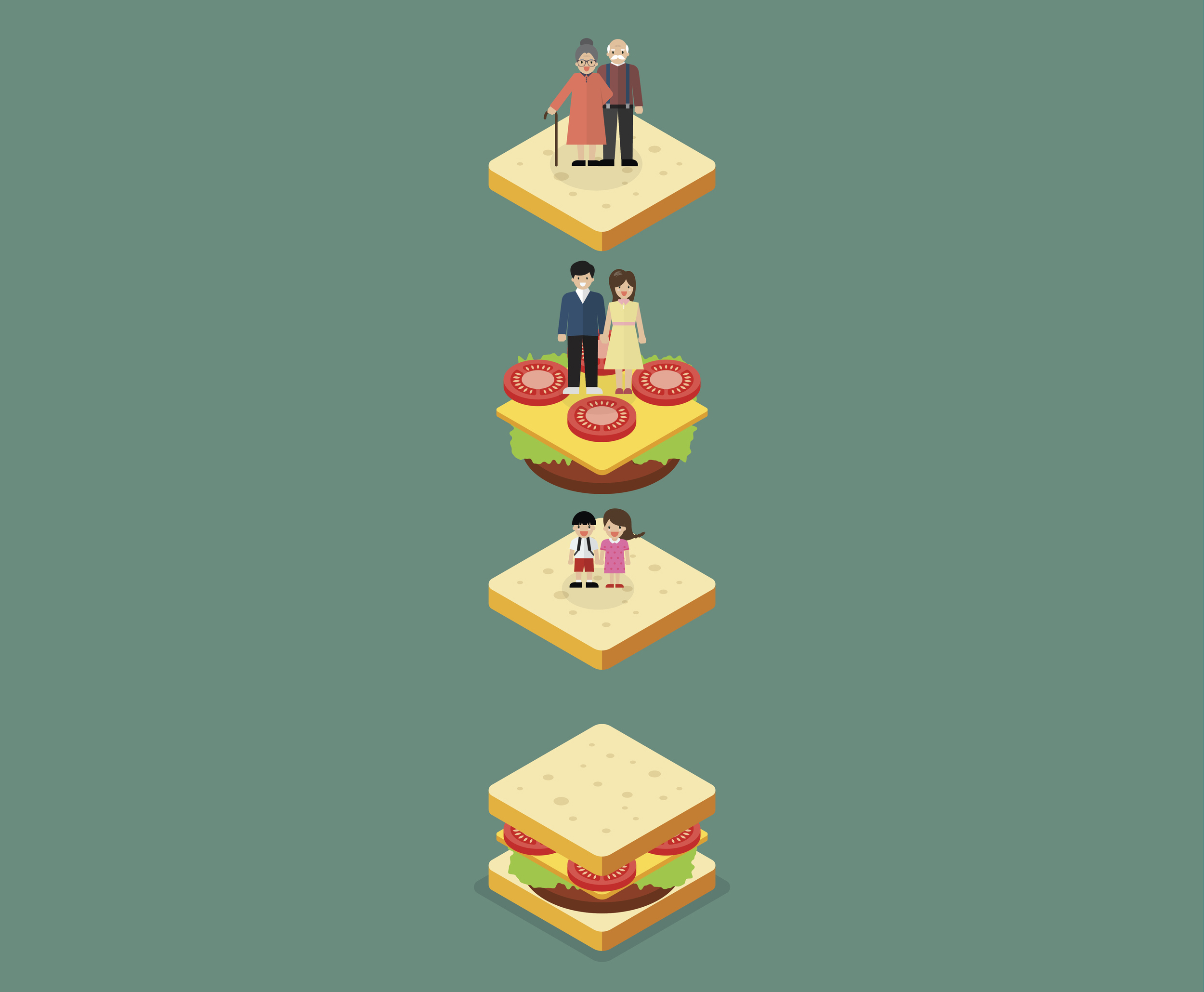Many middle-aged adults today, especially those who may have waited longer to have children in pursuit of careers, adventure, or education, are tasked with providing care for not only their own kids but often aging parents or other loved ones. The “Sandwich Generation” is feeling the squeeze trying to balance the ever-increasing demands of parenthood, careers, and family caregiving. Carving out time for self-care may be difficult, but without it – caregiver stress can lead to burnout, health issues, and exhaustion.
Many parents, and women in particular, feel the pressure to attend every school function, give 110 percent at work, and find time to eat healthy and exercise – all while keeping an immaculate home and driving their elderly parents to medical appointments and community events. Maintaining a schedule that leaves little time for rest, relaxation or social engagement can spell disaster for caregivers and the whole family. Scheduling personal time is as important as scheduling a yearly physical, and yet it may feel selfish to those not used to making themselves a priority.
The number of Sandwich Generation adults who are caring for children at home while providing assistance to aging parents is on the rise. According to a recent Community Voice report, more than half of all Americans in their 40s and 50s are part of this generation. Those statistics are likely mirrored in Canada, as well. The demands of career and family can leave many suffering physical, emotional and mental stress.
To get through these difficult years, Sandwich Generation adults may find sharing wisdom with their peers helpful. Support groups or informal gatherings are an excellent opportunity for people in similar situations to share advice, and tips and possibly exchange caregiving hours. Creating a carpool schedule for kids, or taking turns hosting playdates can help family caregivers free up a little time for themselves or other family members. Respite care for aging loved ones can also be a practical option to ensure the safety and comfort of an elderly parent while family carers are working or taking time for their own needs.
Children and spouses can also be an enormous help when caregiving challenges escalate. Delegating household chores, shopping, dog walking or cooking can ease some of the daily stressors for primary caregivers. It doesn’t always have to be perfect – the dishes can sometimes wait when what you really need is a night off to soak in the tub and escape with a good book. Just as we must schedule time for the dentist or the doctor, creating space and time for our own wellness practice is not a luxury, it is a necessity.






Add Your Voice
0 Comments
Join the Discussion